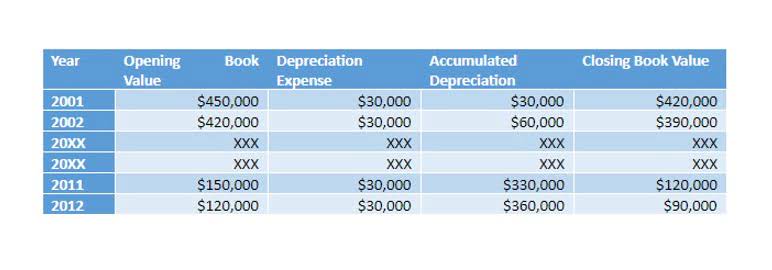
Like their accounting counterparts, controllers tend to experience a much better work/life balance than others in the financial industry. Anyone with a background in economics, statistics, mathematics, or finance and a basic understanding of generally accepted accounting principles (GAAP) can perform bookkeeping tasks. However, individuals must possess their CPA license to apply for more senior-level https://www.bookstime.com/ accounting employment. To prepare for a management position as a controller or CAO, it can also be helpful to get an education, certifications, leadership and management skills, and professional development. If you are interested in the overall financial management of a company, enjoy working with numbers, and have an analytical mindset, a career as a controller might be a good fit for you.
Understanding of financial markets, managing corporate investments, and financing techniques are also needed. The controller is responsible for ensuring that payroll is handled promptly, accounts payable are paid on schedule, and accounts receivable are promptly collected. Also advise establishing benchmarks to compare the effectiveness of business activities. A CFO or VP of Finance are often higher-level positions that are on the executive team.
Controller vs. Chief Accounting Officer: Which Management Position Suits You Best – Conclusion
Once the controller has a clear picture of where the company needs to go, it may begin planning. On the other hand, a CAO is specifically responsible for the accounting function, which includes maintaining financial records, preparing financial reports, and implementing accounting policies and procedures. Choosing between a career as a controller or a chief accounting officer (CAO) depends on several factors, including your interests, skills, and career goals.
Those interested in entering the field of financial controllership will find that obtaining a Master’s degree in finance and accounting gives their resume an additional boost. They are in charge of budgeting, audits, and financial reports, as well as making sure the business complies with all tax laws and regulations. The majority of a controller’s work involves the gathering, examination, and integration of financial data. Although the controller’s duty doesn’t always maintain the annual budget, it does monitor variations, describe trends, and look into budgetary shortcomings.
© Accounting Professor 2023. All rights reserved
Both roles are essential for maintaining financial health and ensuring the organization’s success. Understanding these key differences is crucial for effective financial management and making informed decisions about staffing and resource allocation within a company’s finance department. Understanding the role of a controller also necessitates understanding the role of a chief financial officer (CFO ) and how these roles interact.
- They work to prevent fraud and maintain accuracy for their co-workers, investors, creditors, and regulators.
- International students face unique challenges that can be addressed with dedicated study, interaction with professionals, and maintaining a positive mindset.
- Controllers oversee accounting operations, including accounts payable and receivable, payroll processing, budgeting, tax planning, and financial reporting.
- CAOs, on the other hand, are responsible for ensuring the integrity and accuracy of financial information and safeguarding the company’s assets.
- Certain services may not be available to attest clients under the rules and regulations of public accounting.
- The controller may take on additional roles such as human resources, IT, and even office management.
- Understanding the key differences between a CFO and a Controller is essential for efficient financial management and decision-making.
As a result of these lapses, the company allegedly also could not provide reasonable assurances that its most valuable assets, including its flagship Orion product, were adequately protected. A controller’s role is heavily (if not exclusively) rooted in dealing with actual transactions. Overseeing both revenue and expense reporting, a controller often does not deal in theory. Meanwhile, an FP&A director leverages historical data to devise future plans that may or may not materialize.
Career Path of Controllers
Additionally, if your business is expanding rapidly or pursuing major acquisitions that require strategic financial planning and forecasting expertise, then a CAO would likely be the better choice. A controller and a chief accounting officer (CAO) are both senior-level positions within a company’s finance department but have slightly different responsibilities. Controller functions vary across companies owing to the size and complexity of the business and the industry. Smaller companies demand more versatility of the controller, while larger companies are able to disperse the following job responsibilities across other employees including the chief financial officer and treasurer. The CFO, the senior finance executive, is in charge of strategic financial direction, corporate governance, risk management, financing, and board liaison. The CFO provides top level financial information to the board and translates the board’s strategies into viable financial plans.
- The controller is in charge of the accounting department, but the real decision-makers in the finance division are the CFO and CAO.
- Especially in small companies, the existence of both a CFO and a Controller can lead to confusion over responsibilities.
- A controller is important to finance as they control the risk and reporting aspect of the company.
- A controller’s role is heavily (if not exclusively) rooted in dealing with actual transactions.
The treasurer and controller both work under the chief financial officer, who works directly under the president. The treasurer and controller are both important positions with different responsibilities. A treasurer protects a company’s assets and finances from financial risk caused by business operations, whereas a controller is the organization’s top accountant.
It’s better to look at experienced accountants (even managers or other senior-level positions) when making comparisons to controllers. Entry-level accountancy jobs may be perfectly fine, but the vast majority of controllers have years of experience and several professional certifications. Almost all controllers start out as public accountants or work in corporate chief accounting officer vs controller settings before moving up. Controllers are accountable for the design and execution of financial systems and procedures and for preparing financial statements and budgets. They collaborate closely with other management team members to ensure that the organization’s financial information is accurate, timely, and compliant with all applicable rules and regulations.

